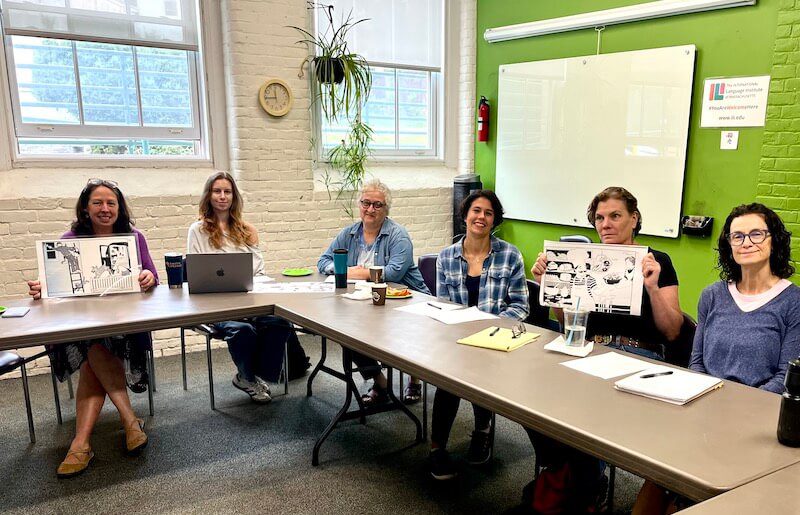
Be like a plant!
Observing a language class at the International Language Institute offers a unique window into the dynamic process of language learning and teaching.
To ensure your observation is both respectful and effective, we’ve compiled a list of DOs and DON’Ts. These guidelines are designed to help you navigate the classroom observation process thoughtfully without causing disruption in our students learning environment.
It’s important to remember that, often, observers are not introduced to the students to maintain the natural flow of the class and avoid influencing the learning environment.
| Don’t | Do |
|---|---|
| Expect to be introduced | Ask where to sit if you are not sure |
| Answer the teacher’s or students’ questions | Be as unobtrusive as possible – like a plant! |
| Talk or text on your cell | Check messages briefly if necessary |
| Eat food | Sip a drink if you’d like |
| Wander around the classroom | Get up to see when necessary |
| React out loud to what’s happening in the classroom | Put your reaction in writing |
| Feel like you have to be a robot – it’s okay to smile or laugh at the right moment | Tell a student your name IF you are asked |
| Take photographs without permission |
Choose 2 or 3 of the below points to reflect on while observing teachers.
- How does the teacher introduce the lesson?
- Does every learner talk? For how long? When do the learners talk to each other?
- How many learners are participating in the activity? For what length of time?
- How does the teacher correct learner errors?
- How does the teacher make transitions from one activity to another?
- What is the ratio of learner/teacher talking time?
- What is the ratio of skills practiced: (listening/speaking/reading/writing)?
- How much does the teacher check for learner comprehension?
- How much native language is used? When?
- What is the focus (goal) of the lesson?
- How many different ways is the focus presented and/or practiced?
- Does the teacher do feedback?
- How does the teacher conclude the lesson?
Advice on Volunteering From our Blog
-

Reaching New Heights in Volunteerism at ILI
Tutoring at ILI isn’t just about helping someone improve their English—it’s about forging friendships, sharing laughter, and bridging cultures. Join us and make a real difference, one conversation at a time.
-

The Impact of Volunteering: Sierra’s Experience in ILI’s Free English Program
Meet an Amherst College senior who shares her experience tutoring English at ILI’s Free English Program. Learn how language education transforms lives and how you can get involved.
-

Community Partners at Work!
Thanks to a District Grant from the Northampton Rotary Club, ILI has expanded volunteer tutor training for those working with immigrants and refugees in our free English classes. Tutors help students improve English skills to navigate life, work, and community in Massachusetts. Join us and make a difference!
The ILI Promise
At ILI, we believe that all our actions should stem from grace and loving kindness.

- We operate as an equal opportunity organization.
- We nurture relationships beyond the classroom.
- We are committed to providing the highest quality language instruction and teacher training.
- We promote intercultural understanding and celebrates the diversity in our local communities.
- We works collaboratively to build and sustain the communities we serve.
- We believe in life-changing teaching and learning.



